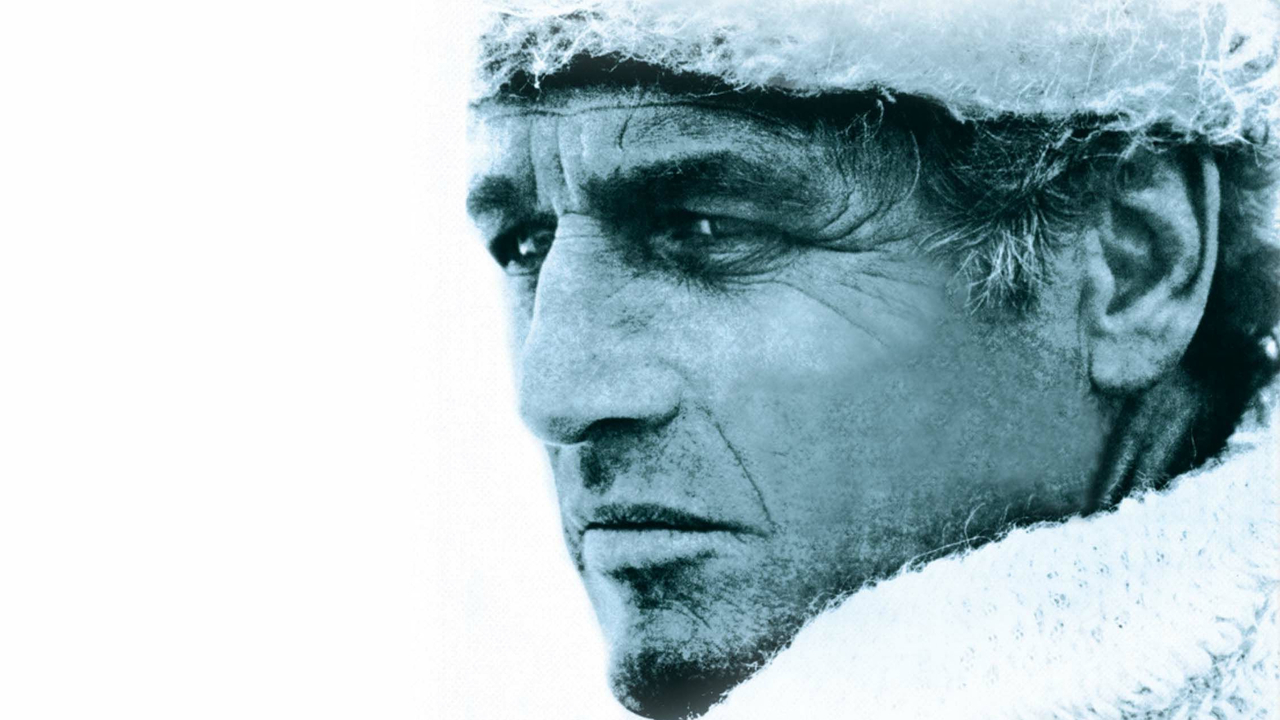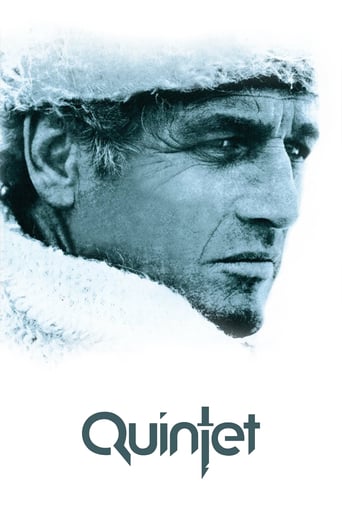



Clever and entertaining enough to recommend even to members of the 1%
View MoreAt first rather annoying in its heavy emphasis on reenactments, this movie ultimately proves fascinating, simply because the complicated, highly dramatic tale it tells still almost defies belief.
View MoreIt’s not bad or unwatchable but despite the amplitude of the spectacle, the end result is underwhelming.
View MoreWhile it is a pity that the story wasn't told with more visual finesse, this is trivial compared to our real-world problems. It takes a good movie to put that into perspective.
View MoreI usually do not comment on a film that I have not seen fully. But here I must. I only saw about 10 minutes of this thing, when Paul Newman checked into the "Hotel" met the guy with the funny man, with the hat with stars on it, and they walked over to a gambling table. That's when I checked out. Current rating for this pile of crap is 5.2. Some giving it a 10.Here's a few of the problems: 1) The edges of the screen were foggy, like in a dream, trying to make it look atmospheric or in a frozen lens – pure crap. 2) "Music" – sound effect – pure crap. 3) Acting – trash. 4) The costumes – what's the deal with the funky hat's? – It looked like they hollowed out some pillows and stuffed it onto actors heads. What's the deal with the guy with the Italian accent. This is supposed to be the future. Maybe someone in the writing team would think that at some point an old fashioned accent like that would have disappeared. So, what I saw was a sample of the movie, 10 minutes. Where I saw the video and heard the audio – what else is there? It was trash. I read through the other reviews. Check it out yourself. All I can say is this thing is a joke. If Paul was alive, I'm sure some dirt-bag at some party would wisecrack about this pile of garbage to him, and get his butt kicked by Paul's bodyguards.
View MoreI had never heard of this movie until I saw it in an "obscure sci-fi" list. That was surprising, because it sounded like it was right in my wheel house. I love 70s post-apocalyptic sci-fi, I love Paul Newman, and I love Robert Altman movies.For the record, I loved Zardoz, which is generally regarded as another high-concept misfire, so I had hopes I would like this one in spite of the suspiciously low Rotten Tomatoes score.Unfortunately, RT was right. This was just boring and terrible. Basically, an ice age has enveloped the Earth and everyone passes their time playing a game called Quintet - and people get killed over it. That's it; that's the plot.The whole thing had the feel of a pilot for a TV show that was never picked up. You know, like maybe in the next episode, something interesting would happen. There definitely wasn't enough there to stand on its own.On top of everything else, it takes itself really seriously, so it even fails in the "so bad it's good" category".I can't recommend watching this movie for any reason whatsoever.
View MoreQuintet is a post-decline film, I use the word decline rather than (post nuclear) apocalypse as something quite a lot more gradual seems to have happened. It's not implicitly suggested that this film happens on earth, or suggested otherwise. We have a snowbound pentagonal city, and we have a seal hunter Essex (played by Paul Newman) approaching the city from the infinite snowscape of the South. We have an almost bizarre quality of cast including Bunuel favourite Fernando Rey and Bergman regular Bibi Andersson. And we have a deadly game, Quintet. The game it seems is played both on a board and occasionally in the flesh so-to-speak (imagine if people tried to act out chess). Robert Altman even invented a real game of Quintet for the film, and apparently people still play it. It's clear that the game is vicious from the start, when we see a player manipulate pieces so as to arrange the "killing order"; also that there is a philosophy behind the game, individuals covet their pieces which are often high craft, and passed down as heirlooms (Altman had people finding curios in antique shops for this). The central driver of the plot is that Essex witnesses a murder and spends the whole movie trying to find why it happens and what it all means.I would call the set for the film one of the "great movie sets". It's shot on the dilapidated remains of the Expo 67, or the Montreal World Fair from 1967, which was based on some partly man made islands in the Saint-Lawrence River. Expo 67 was a fairly enormous matter of Canadian pride back then, the housing development built to coincide with it "Habitat 67" is stunning (pictures can be got from google quite easily).It is an example of the great genius of Robert Altman that instead of control freaking a script he went to Montreal and let the script fit itself around the deserted bewintered pavilions. One of the players, called Saint Christopher runs a mission for the feeble where he preaches all sorts of skewed dissonant religion. Behind him whilst he orates, we see a banner, clearly a relic from the Expo, "The Earth is the cradle of the mind, but we cannot live forever in a cradle". This is a quote from Konstantin Eduardovitch Tsiolkovsky, the father of Russian space exploration, and written in 1911, perhaps decorating some sort of planetarium originally. In the religious context relating to the afterlife in which Altman places it, it becomes phantasmagorical and bewitching (as does a photo collage in the main quintet hall). This is a true example of film aleatoricism, the film was already green-lighted before Altman had been anywhere near the Expo, originally the idea was to shoot in Chicago.Another thing Altman makes an asset out of are his clearly wizened and ageing cast, it lends gravitas because the world of Quintet is one where no-one has been born in at least a generation, it's just something else that he made fit. One common complaint of the film is that the cast didn't have very good English. That is undoubtedly true, however I wasn't having very much problem with it myself. It goes to emphasise the estrangement of all the characters, it's right that they find communication difficult, one character smiles on hearing Essex use the word friend because he hasn't heard that word in a long time.This film is very philosophical about the nature of existence and the directions we should take, however let me give you the big health warning that you will only get out of it what you yourself put in, hence the current 4.6/10 rating on the IMDb, it is not a film for the idling. One thing I also liked about it by way of image is that it was very much like a silent film. Altman in a great many of the shots has had Vaseline smeared around the edges of the camera to create that kind of cosy centring effect that you see in early silent films, ie. the oneiric lack or periphery. He's also enjoying the shooting of nature. It reminds me a bit of Sir Arne's Treasure (1919 - Mauritz Stiller), where a lot of the focus is simply on shooting nature, and also of the frozen alpine scenes you get in German bergfilms.At the moment this film is available on R1 DVD via a four-disc box-set of Altman films. One extra bonus point for the set is it has a Quintet documentary with chat from RA himself. As regards what people have said of the Cold War, I didn't hear Altman mention it once, it's a film that works just as well now. Surely there were Cold War parallels, but in fact the film is utterly timeless.I want to give you a further health warning that for those of you who are looking for a lot of plot and in depth characterisation, you will find in this film two hours of monotony, and it will also depress you. For me it's true genius.
View MoreThis is one of the many very good performances by Paul Newman, who was always underrated as an actor because of his all-encompassing beauty. The main problem with this movie, in my opinion, is the huge Vaseline budget they had. The whole movie was shot with Vaseline at the edges of the lens. I find that very annoying. When I make the effort to remember not to be annoyed by that "Vaseline experiment", I find it is not a bad movie by a long shot. The cast is brilliant, the futuristic plot is innovative for the period and the decor is intriguingly apt. The smearing of Vaseline on the lens applied to a whole movie may have been innovative, it was certainly daring, but I, for one, like to be able to look at the part of the screen I choose, and not be forbidden to have a clear look at the edges. CH
View More